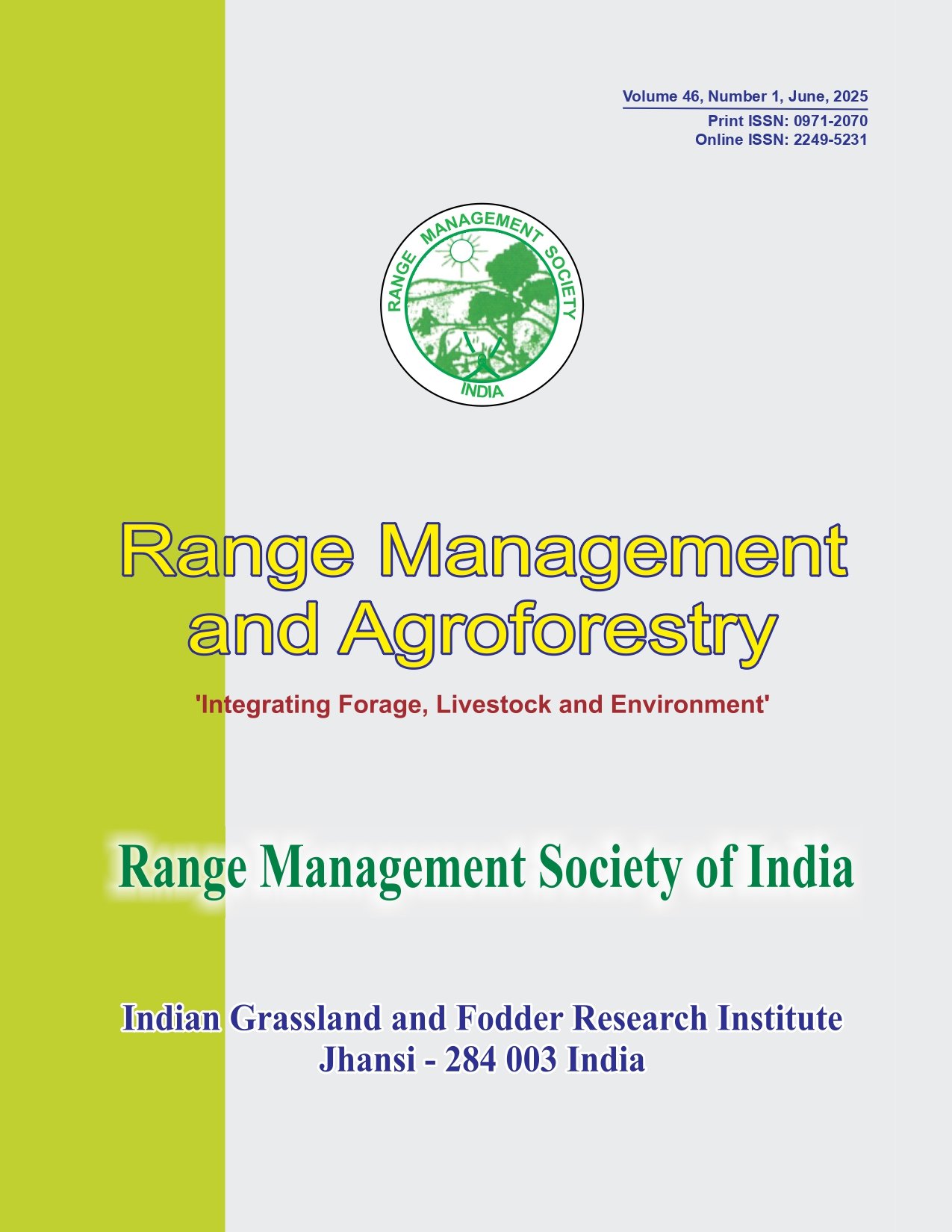Berseem hay supplementation to improve productivity of Bundelkhandi goats in winter season
DOI:
https://doi.org/10.59515/rma.2024.v45.i1.26Keywords:
Berseem clover, Bio-priming, Phosphate solubilizing bacteria, Pseudomonas, Seed quality and Seed yieldAbstract
The study was conducted to determine the effect of berseem hay supplementation on the productive performances of goats in the winter season. About 20 Bundelkhandi male goats were selected and fed either on conventional feeding (control group, n = 10) and improved diet (treatment group, n = 10). The control group fed on conventional grazing (8 hours) + conc. mixture @ 1.0% of BW while the treatment group was fed on conventional grazing (8 hours) + conc. mixture @ 1.0% of BW + quality berseem hay (300 g/head/d). The Meteorological variables, feed intake, body weight, nutrient digestibility and physiological parameters (rectal temperature, head surface temp, pulse rate, respiration rate) were measured. The climatic variable suggested that during December and January month animals were under cold stress. There was no significant difference between groups for physiological parameters. However, during peak winter, rectal and head temperatures were recorded in the lower range in both groups during the evening. The body weight gain in goats fed with the treatment diet was significantly (p <0.05) higher as compared to the control group. It was concluded that the supplementation of berseem hay (300 g/h/d) in male Bundelkhandi goats resulted in improvement in protein (8.07 vs. 10.05, g/kg W0.75) intake with a positive impact on body weight gain without any significant effect on physiological parameters during the winter season.








